Inside CLASPP
At CLASPP we are on a journey to learn and develop products and processes that align with the mission of sustainability. As a part of this journey, it is very important to share what we have learned because it is you, our informed customer, who ultimately makes this journey possible. Thanks for your support!
Learn what drives us every day.
-

The Ultimate Guide to Finding Your Perfect Phone Case
CONTINUE READINGHey there, smartphone
enthusiasts! Has your trusty phone case seen better days? If it's cracked or broken, it might not provide the protection your phone needs in case of a tumble. Why risk it, especially with the high prices of smartphones these days? We all know the struggle of finding the perfect phone case. With so many options and price ranges out there, it's easy to feel lost. But fear not! We're here to help you navigate this confusing terrain and find the ideal case for yourbeloved gadget. Ready to embark on the quest for the perfect phone case? -
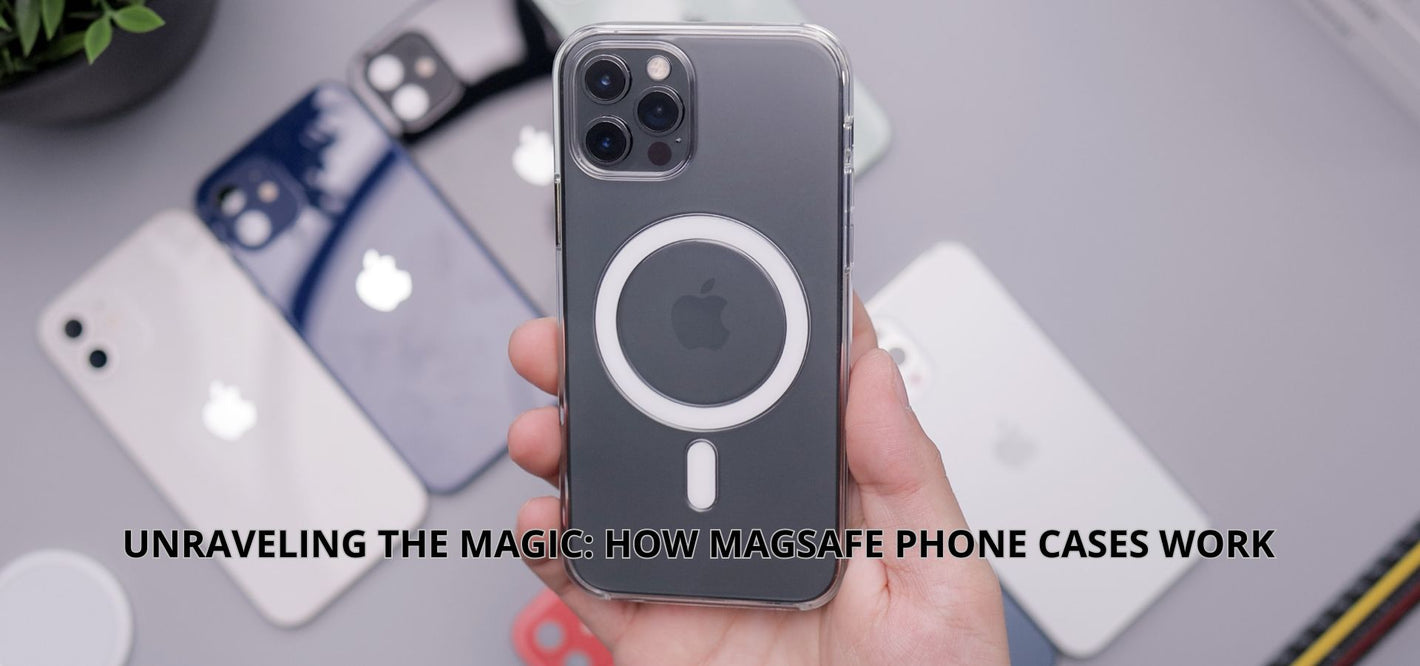
Unraveling the Magic: How MagSafe Phone Cases Work
CONTINUE READINGHey there, eco-tec enthusiasts! If you're rocking the latest iPhone, then you know the buzz about MagSafe. It offers unparalleled convenience for charging your phone without plugging in wires. When you use a phone case, depending on the design of the phone case and its material, MagSafe charging may work or not work at all. If you use MagSafe charging regularly or use magnetic mounts to hold your phone on your desk or in your car, taking your phone case off every time for charging is a huge inconvenience. Several phone case manufacturers make...
-

Elevating Everyday Joy: How a Vibrant Phone Case Adds Spark to Your Day
CONTINUE READINGIn the whirlwind of modern life, finding moments of tranquility and joy amidst the
chaos is a treasure sought by many, especially people navigating the realms of
career, family, and self-care. Amidst the digital barrage and screen-induced
stress, there exists a simple yet powerful means to infuse your day with
tranquility—the right phone case. A phone case that is not only offers peace of
mind by protecting your phone but is also designed to display the colors and
patterns you love to brighten
-

Where to Find the Best Christmas Personalized Phone Cases - The Ultimate Stocking Stuffer!
CONTINUE READINGIn the hustle and bustle of daily life, moms are often the glue that holds the family together. From managing schedules to creating a warm and loving home, their efforts deserve recognition and appreciation. If you're a mom looking for a heartfelt way to celebrate your family and show your love, personalized gifts are a fantastic choice. In most cases, these precious gifts are put away out of sight after the Holidays and forgotten. Wouldn’t it be wonderful to get a personalized gift that will be close to your loved one throughout the year, long after the Holiday season is over?
-

Christmas Phone Cases - The Perfect Stocking Stuffers for Your Gang!
CONTINUE READINGThe holiday season is just around the corner, and it's time to spread some Christmas cheer with the best stocking stuffers ever – Christmas phone cases! These cute and festive iPhone covers are not just good stocking stuffers; they're also the ultimate Christmas gifts to make your friends and family feel special. With a bunch of fabulous designs and protective features, these phone cases are all about style and practicality. In this blog post, we're diving into the world of holiday phone cases and sharing where to buy holiday phonecases that are perfect for you and your gang.
-

Wrap Up the Perfect Gift: A Guide to Finding the Ideal Christmas Phone Case for Sale
CONTINUE READING'Tis the season to be jolly, and if you're on the lookout for the perfect Christmas gift, look no further than holiday phone cases! Whether you're shopping for your tech-savvy BFF, your stylish sibling, or even treating yourself, finding the ideal phone case is a gift that keeps on giving. In this merry guide, we'll unwrap the secrets to discovering the perfect Christmas phone case for sale that will bring joy and style this holiday season. Plus, we'll spill the beans on where to buy holiday phone cases and uncover the best stocking stuffers that will make your Christmas gift hunting a breeze!
-

Show Your Holiday Spirit with Trendy Christmas iPhone Covers!
CONTINUE READINGIf you're on the hunt for the trendiest Christmas iPhone covers that will showcase your holiday spirit, you're in the right place. In this blog, we're diving into the world of holiday phone cases and showcasing some of the best options to help you jazz up your tech for the holiday season. Plus, we've got a fabulous eco-friendly option that's perfect for gift-giving...
-

DeckYour Tech: The Hottest Christmas iPhone Covers of 2023!
CONTINUE READINGIf you're on the hunt for the perfect Christmas iPhone covers, you're in the right place. In this article, we're diving into the coolest and trendiest holiday phone cases you can snag in 2023. Plus, we'll introduce you to a fantastic eco-friendly option that's perfect for gift-giving. So, grab your hot cocoa, cozy up, and let's get started! First things first, let's talk about where to...
-

Get Festive: Where to Snag Cool Christmas Phone Cases
CONTINUE READINGThe holiday season is just around the corner, and you know what that means – time to give our phones a jolly makeover with some seriously cool Christmas phone cases! If you're on the hunt for the perfect accessory to show off your holiday
spirit or to gift as awesome stocking stuffers, you're in luck. In this guide,
we're diving into where to find the hippest holiday phone cases for Christmas....
-
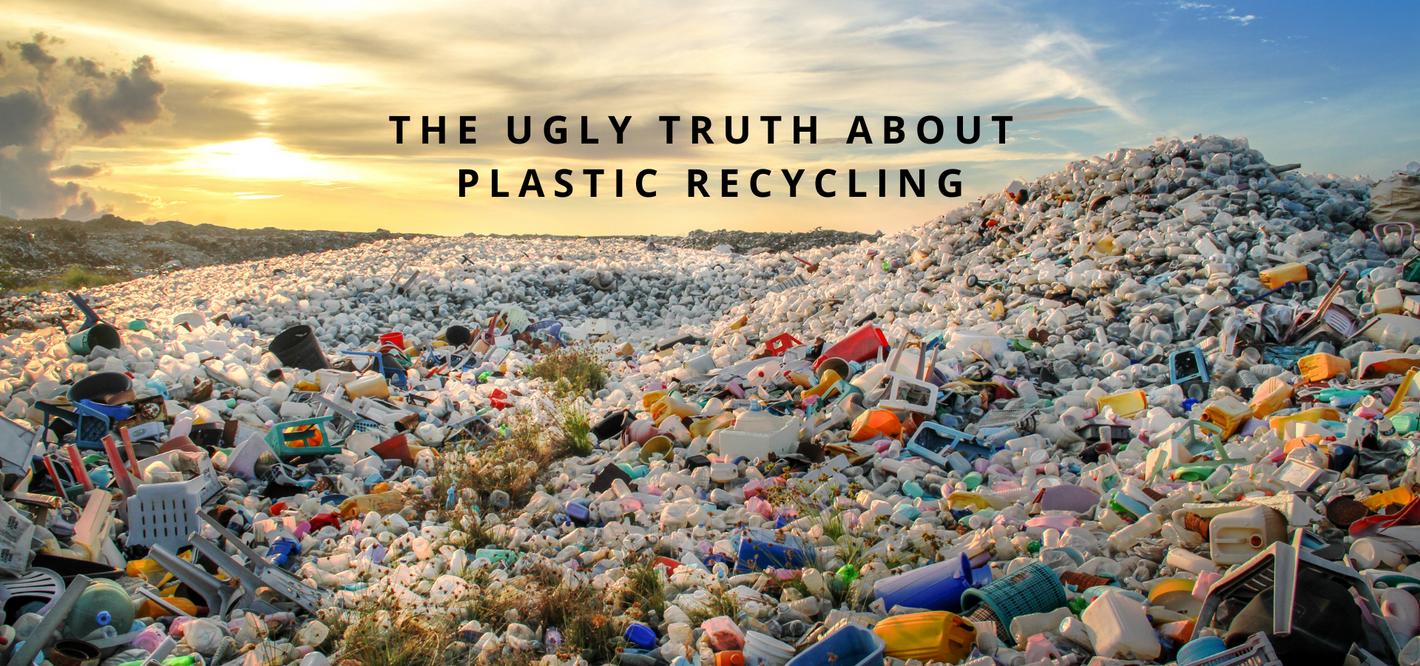
The ugly truth about plastic recycling
CONTINUE READINGThe plastic pollution crisis has reached such a scale that the United Nations has declared it a "planetary emergency". Plastic pollution has impacts on human health, wildlife, and the environment and it is a major contributor to climate change. The problem is only getting worse with the increasing demand for plastic...
-
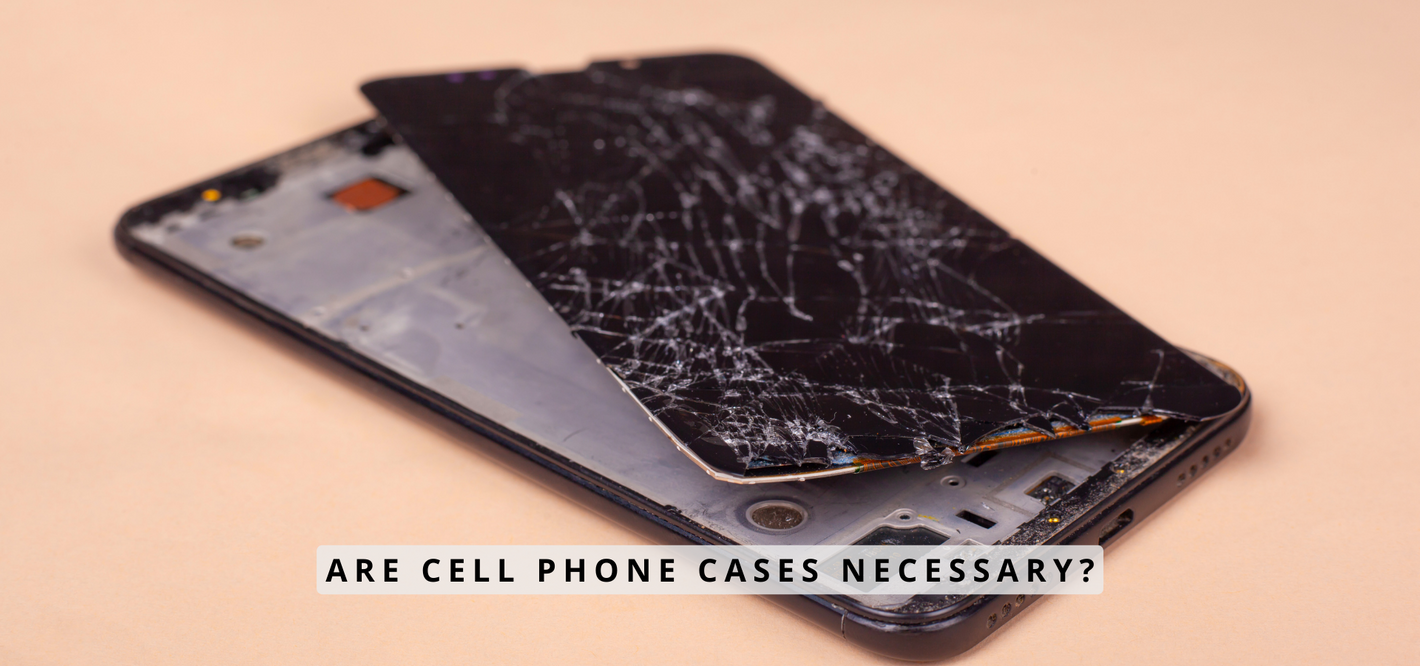
Are cell phone cases necessary?
CONTINUE READINGCell phone cases not only help to extend the lifespan of a phone but also add a personal touch to the device. With the multitude of options available in the market, choosing the right cell phone case can be a daunting task, which is why it's important to consider different factors such as the needs, lifestyle, material, style, and brand of the case...
-
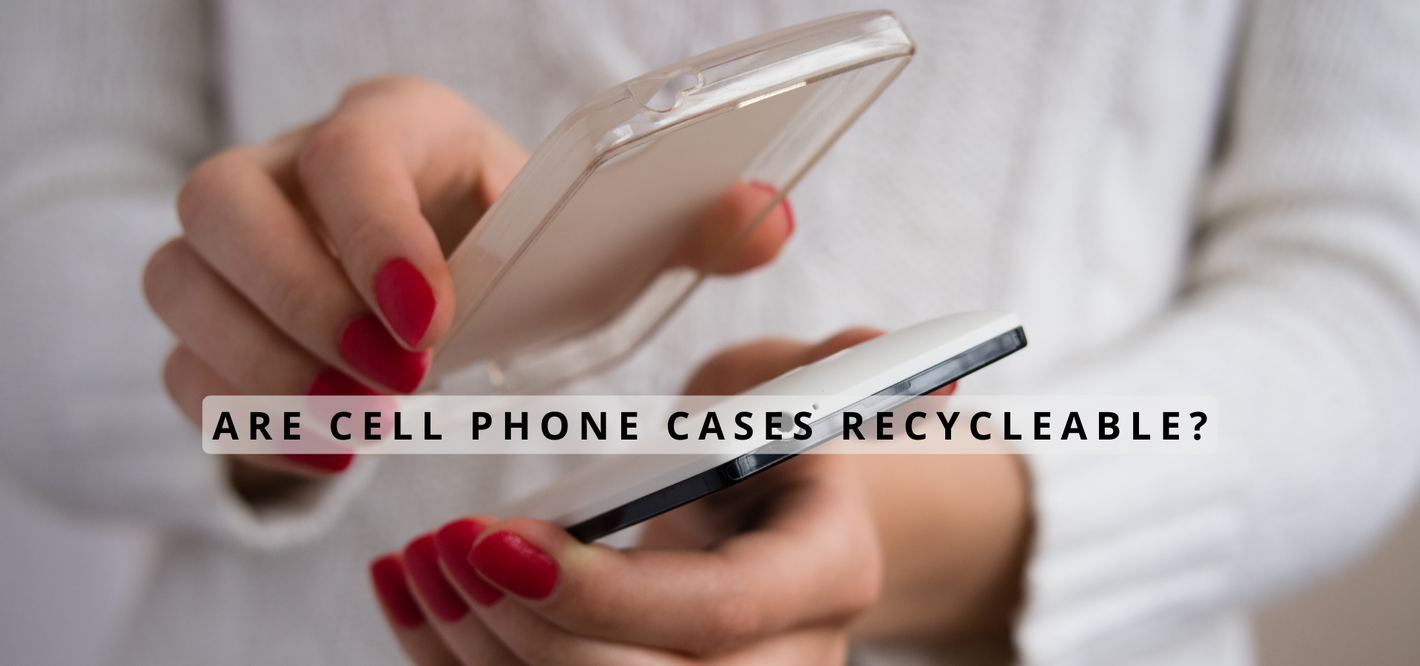
Are cell phone cases recyclable?
CONTINUE READINGCell phone cases are a common type of plastic waste and are generated in large quantities due to the fast pace of technological advancement and consumerism. It is estimated that around 1.5 billion plastic phone cases are discarded after use every year. The question of whether cell phone cases are recyclable has become increasingly...
-

What happens to your phone case after you are done with it?
CONTINUE READINGIf you think about it, you use a phone case for only a few years, on average no more than 2 years but if you make the wrong decision about which phone case to buy this choice can have profound consequences for the environment. For example, plastic phone cases that cannot be recycled can survive up to 1000 years in a landfill...
-
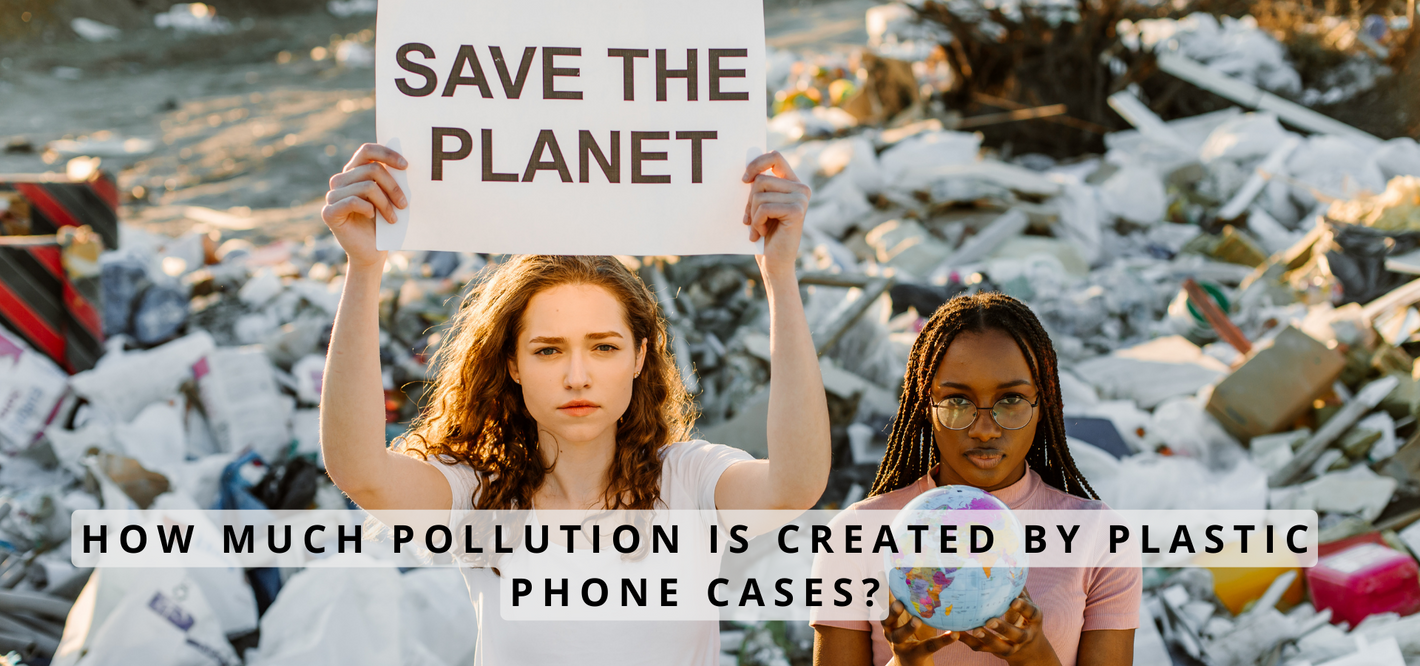
How much pollution is created by plastic phone cases?
CONTINUE READINGThe problem with plastic phone cases is that they are not biodegradable and can take up to a thousand years to decompose in landfills. Additionally, plastic phone cases are often discarded after a short period of use, normally 1 to 2 years, and contribute to the growing problem of plastic pollution in our land, oceans, and waterways...
-

Does your choice to consume plastic products impact the life of your children?
CONTINUE READINGAccording to the World Economic Forum, about 8 million metric tons of plastic ends up in the oceans each year. It is estimated that by 2050, there will be more plastic in the oceans than fish by weight. Plastic also ends up in landfills, where it can take hundreds of years to decompose. This is a huge problem because only 9%...
-
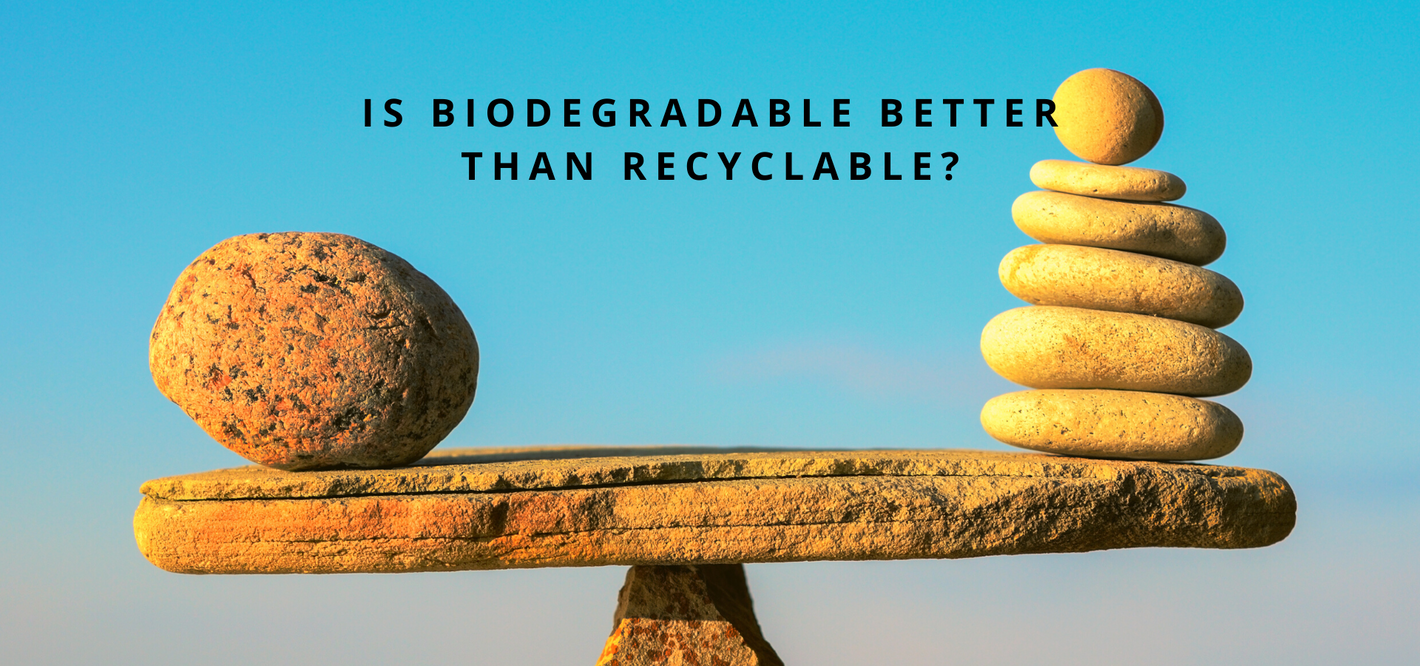
Is biodegradable better than recyclable?
CONTINUE READINGEven though there are many definitions in the media for the terms biodegradable and recyclable, there are nuances that people should be aware of when discussing and debating them. In this blog post, I would like to clarify these nuances so people can make smart decisions about what they buy...
-
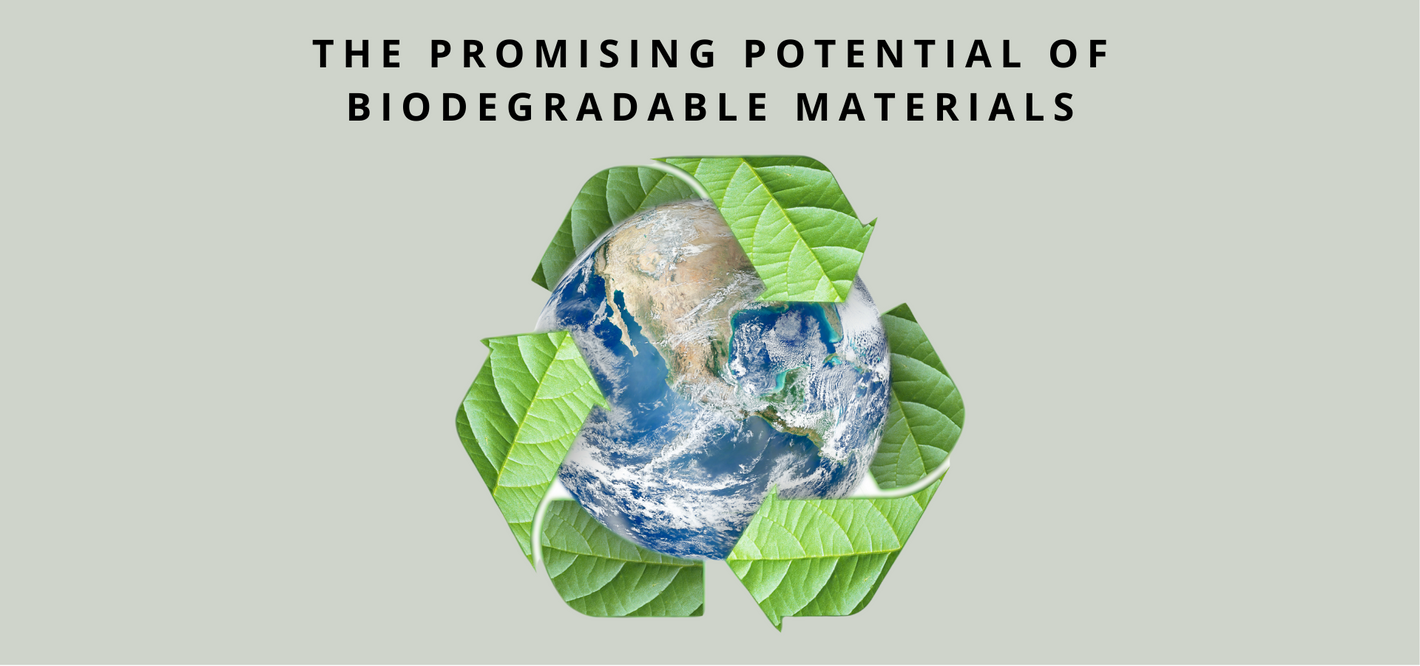
The promising potential of biodegradable materials
CONTINUE READINGDurable, biodegradable materials are materials that are used to make consumer products such as biodegradable phone cases but are designed to break down naturally in the environment, unlike traditional plastics which can take hundreds of years to degrade. These materials are typically made from...
-

How to find the right cell phone case for you?
CONTINUE READINGProtection against physical damage is the primary reason for using a cell phone case. A good quality case can protect your phone from scratches, cracks, and dings caused by daily use. Additionally, a case can help absorb shock if the phone is dropped, reducing the risk of internal or screen damage. Some cases also provide
-
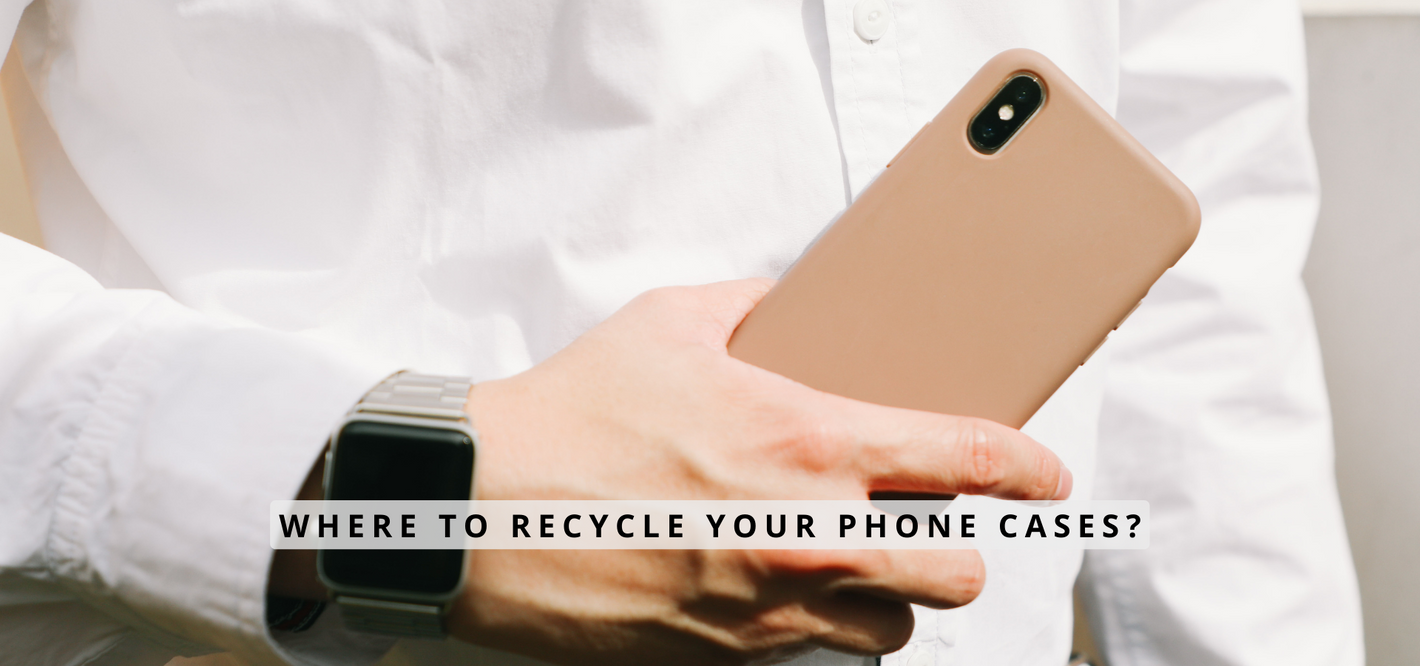
Where to recycle your phone case?
CONTINUE READINGAstechnology evolves, so does the amount of electronic waste that we generate. Old phones, tablets, and laptops are regularly recycled, but what about phone cases? These often get overlooked, yet they contribute to the growing amount of e-waste that ends up in landfills. It is estimated that 1.5 billion phone cases end up in trash or landfills every year. Fortunately, there are...
-

What are biodegradable phone cases made of?
CONTINUE READINGAs more and more people become aware of the environmental impact of plastics, biodegradable phone cases are starting to become increasingly popular. These cases are made of materials that break down naturally in the environment, reducing waste and pollution. In this post, we’ll explore the materials commonly used to make biodegradable phone cases. One of...
-
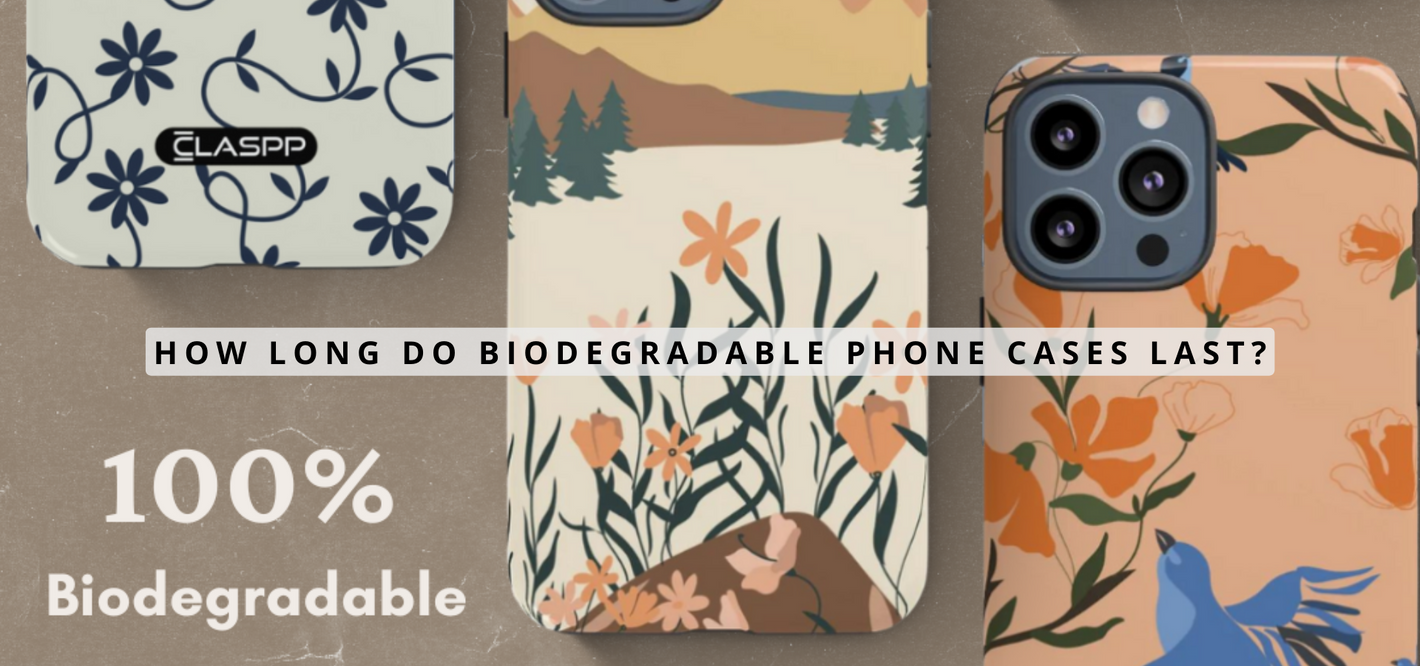
How long do biodegradable phone cases last?
CONTINUE READINGBiodegradable phone cases are a sustainable alternative to traditional plastic phone cases.
They are made from natural materials that can break down in the environment, reducing waste and pollution. However, one question that often comes up when considering biodegradable phone cases is how long they last. In this post, we will...
-
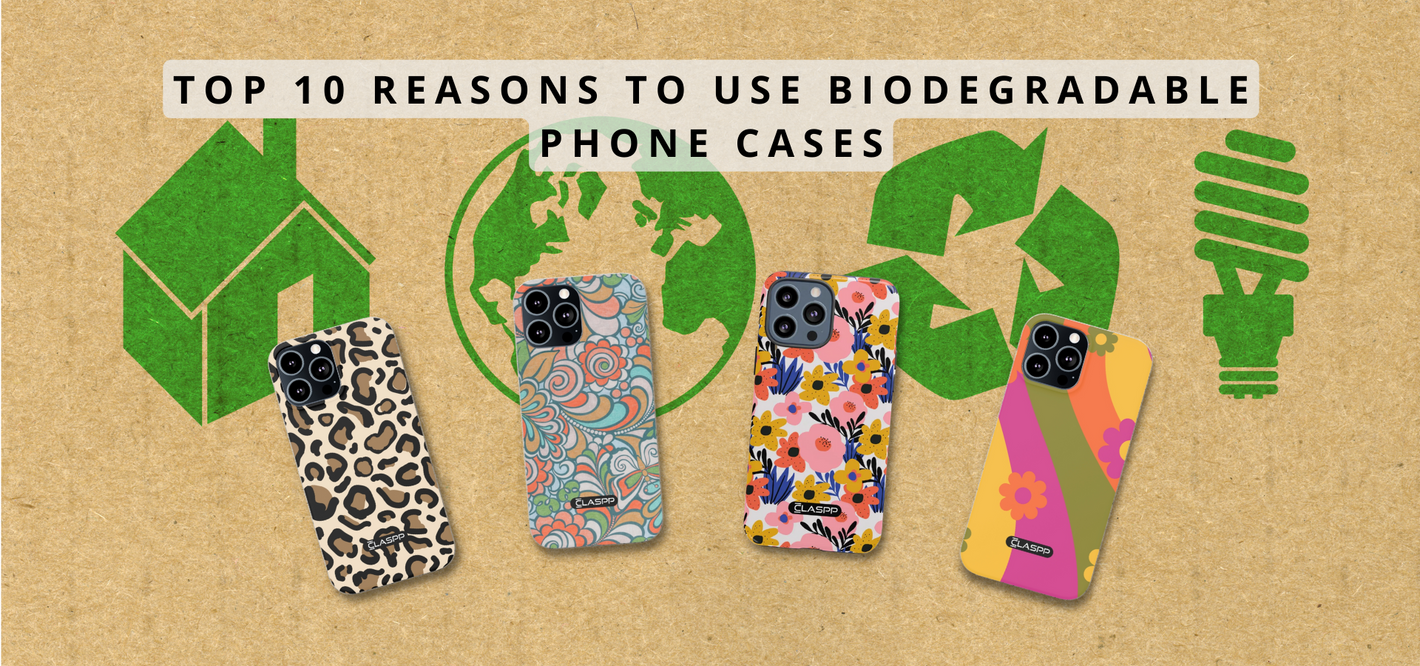
Top 10 reasons to use biodegradable phone cases
CONTINUE READINGIn today's world, smartphones have become an essential part of our lives. We use them for everything from communication to entertainment, and we often rely on them to stay connected with the world around us. However, with the increasing use of smartphones comes an increase in waste, including the disposal of phone cases. There are over 6.5 billion smartphones in use worldwide...
-
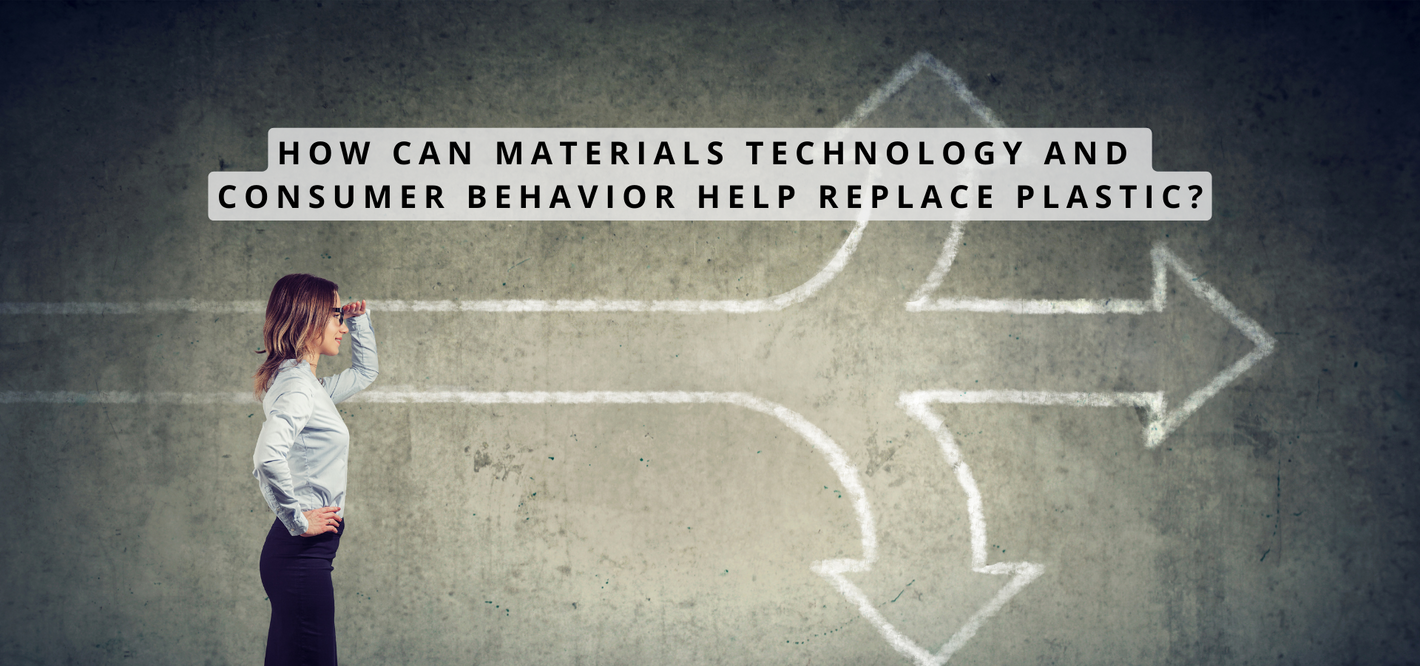
How can materials technology and consumer behavior help replace plastic?
CONTINUE READINGPlastics have been a ubiquitous material in our daily lives for decades, but their negative impact on the environment has become increasingly apparent. Plastic waste has become a significant problem for our planet, polluting our oceans and harming wildlife. As a result, scientists and entrepreneurs have been actively searching for alternative materials to...
-
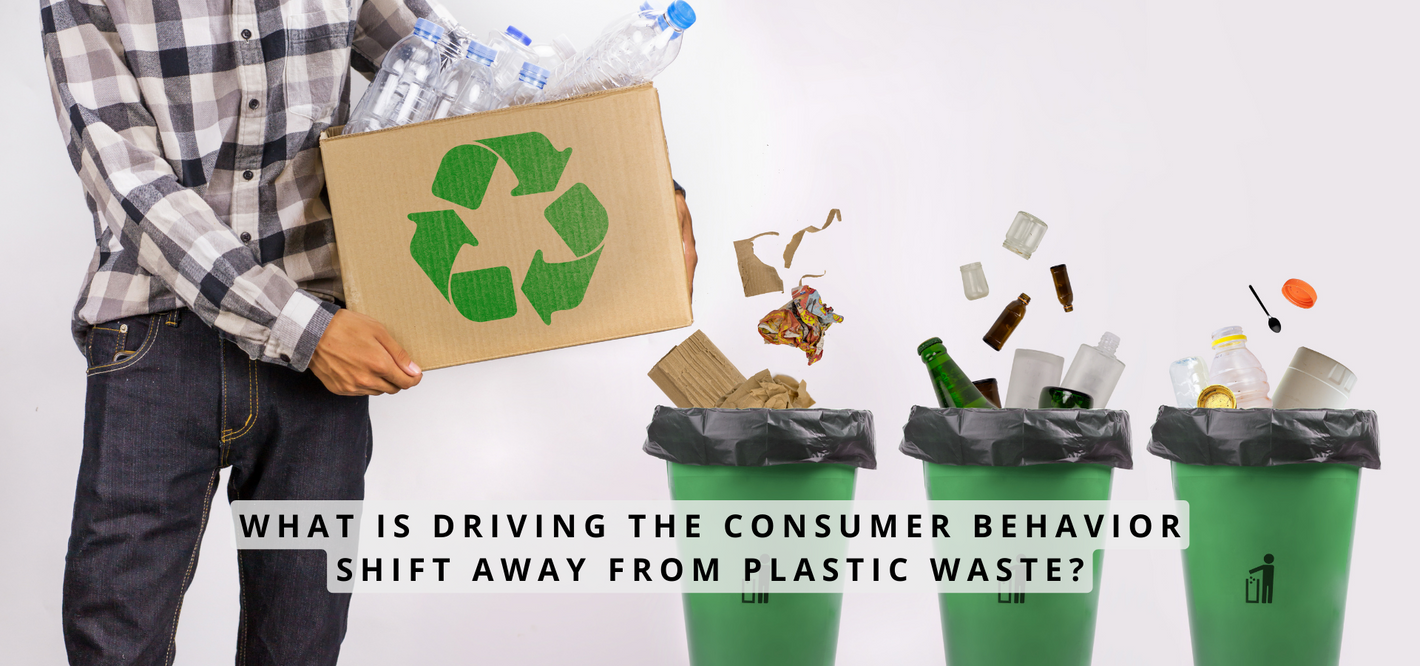
WHAT IS DRIVING THE CONSUMER BEHAVIOR SHIFT AWAY FROMPLASTIC WASTE?
CONTINUE READINGConsumer behavior is shifting away from plastic waste due to several reasons. Firstly, consumers are becoming more aware of the environmental impact of plastic waste and are increasingly concerned about the long-term sustainability of the planet. This awareness is leading to a desire to minimize plastic waste and to live more sustainably.
-
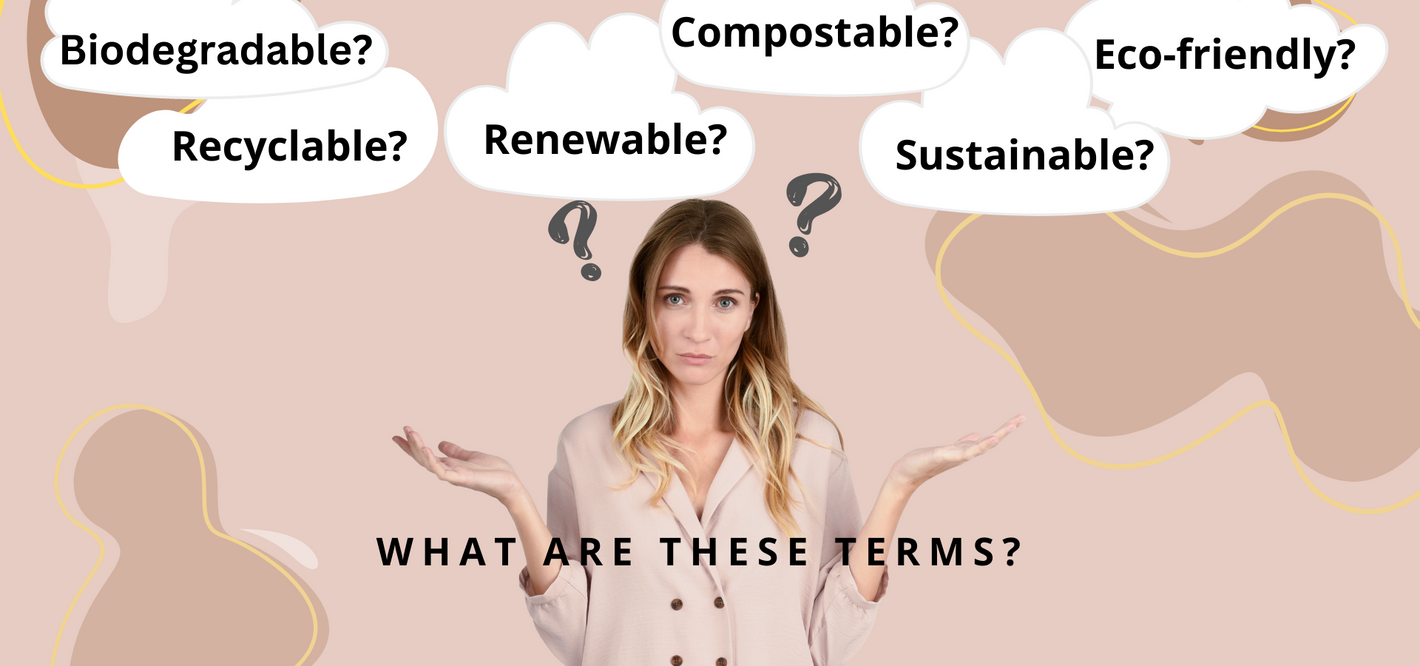
What is the difference between eco-friendly, renewable, sustainable, recyclable, biodegradable, and compostable products?
CONTINUE READINGPeople have become increasingly conscious about the products they buy and consume. This shift in consumer behavior has resulted in some makers producing things that cause little to no environmental damage. Many makers are starting to focus their attention on the materials they use as ingredients, reducing the waste produced during the manufacturing processes, as well as what happens...
-

The promising potential of biodegradable materials
CONTINUE READINGPlastic waste in the environment is a serious problem because plastic is not biodegradable, meaning it does not break down naturally in the environment. Instead, it breaks down into smaller and smaller pieces, known as microplastics, which can persist in the environment for hundreds of years. These microplastics can be harmful to wildlife, as well as to human health. Plastic waste can also contribute to the formation of large garbage patches in oceans, which can harm marine life and disrupt marine ecosystems.
-
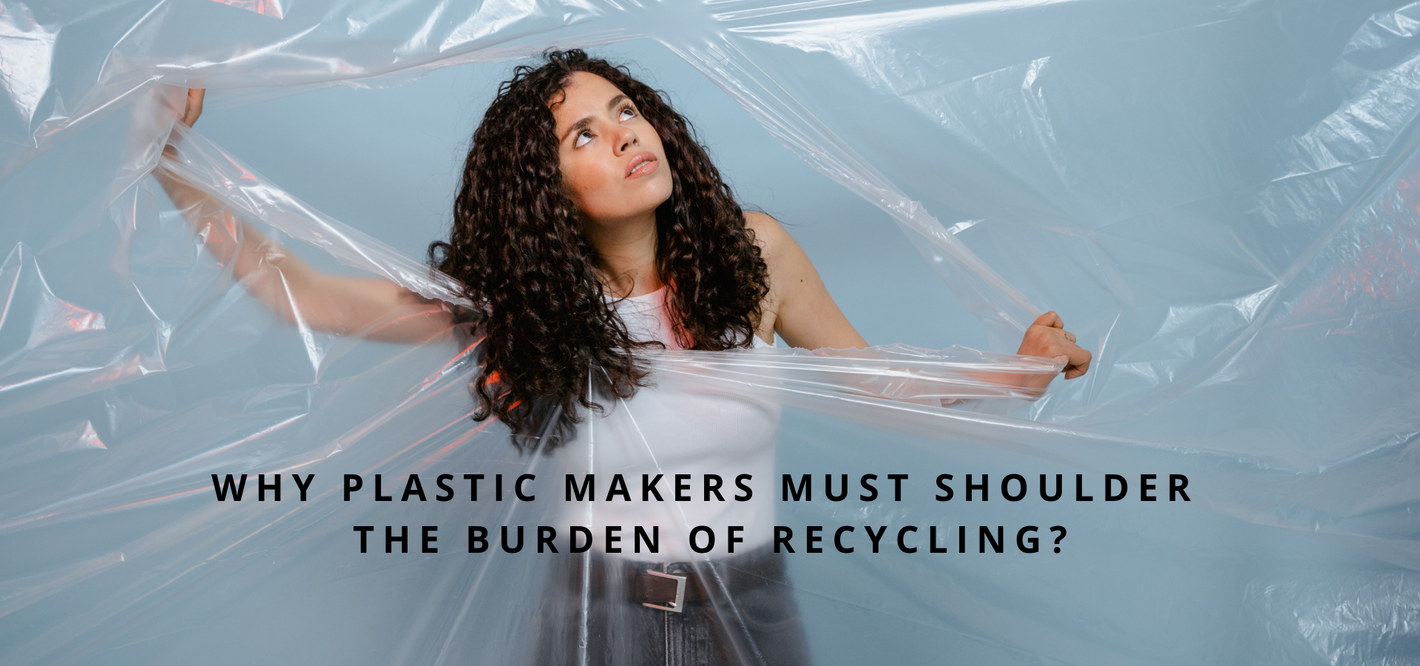
Shifting the Paradigm: Why Plastic Makers Must Shoulder the Burden of Recycling
CONTINUE READINGIn our modern world, the convenience and versatility of plastic have revolutionized industries and transformed daily lives. Yet, the hidden costs of this marvel material are becoming increasingly evident as plastic waste overwhelms our environment. As the global call for sustainable practices grows louder, a paradigm shift is essential. It's time for plastic manufacturers to bear the responsibility of recycling the very materials they produce. This article...


























